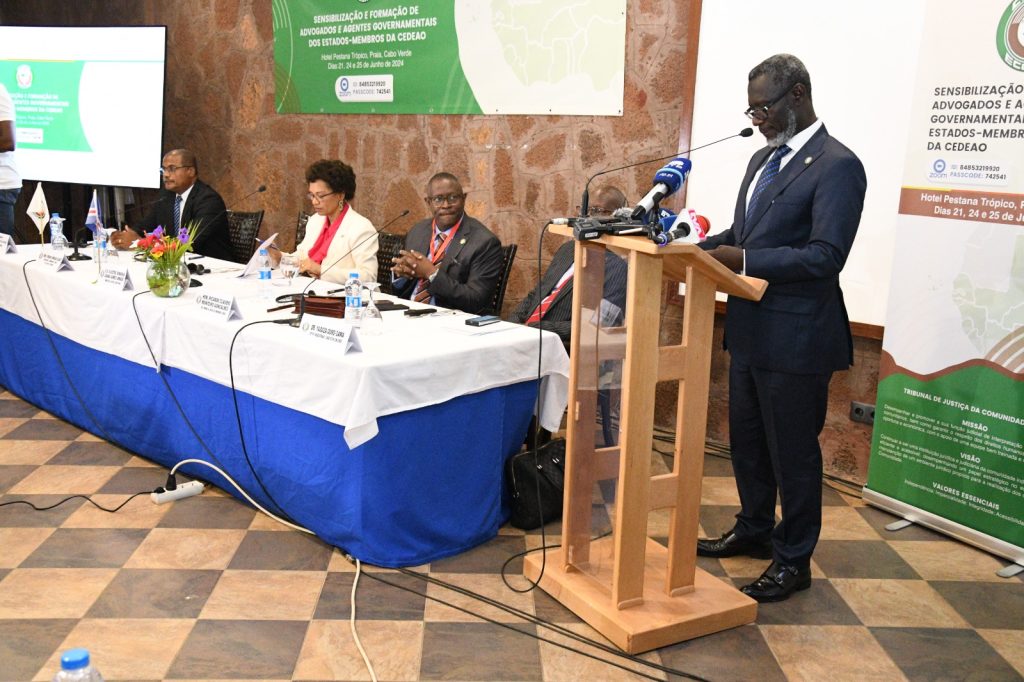Accra, June 21, GNA-The President of the Community Court of Justice, ECOWAS, Hon. Justice Edward Amoako Asante, on Friday officially opened the sensitisation and training programme for lawyers on the Electronic Case Management System (ECMS) of the Court in Praia, Cape Verde.
The programme, holding from June 20 to 25, 2024, aims to enhance the digital proficiency of legal practitioners from Cape Verde and Guinea Bissau, the Lusophone member states of ECOWAS.
In his opening remarks, Justice Asante extended warm greetings from Abuja, Nigeria, and highlighted the Court’s recent sensitisation missions in Lomé and Accra.
He expressed his gratitude to the President of the Supreme Court, the Minister of Justice of Cape Verde, and the Cape Verdean government for their hospitality and support.
Reflecting on the history and mandate of the ECOWAS Court of Justice, Justice Asante noted its establishment under the Lagos Treaty of 1975 and its operational commencement in 2001.
He emphasised the Court’s expanded jurisdiction to adjudicate human rights cases since 2005, underscoring its role in upholding fundamental rights, the rule of law, and good governance in the region.
Justice Asante discussed the Court’s digitalisation initiatives, which were expedited due to the COVID-19 pandemic, including the adoption of 2020 Practice Directions on Electronic Case Management and Virtual Court Sessions.
These measures have significantly reduced litigation costs and enhanced access to justice, he noted.
The new ECMS, he explained, supports electronic filing, service, and management of cases, streamlining judicial processes and making the Court more accessible.
The ECMS features an external user portal for litigants and lawyers, and an internal interface for judges and judicial staff, accessible 24/7 in English, French, and Portuguese.
This system facilitates real-time access to case information, court notifications, and virtual hearings, enhancing transparency and accountability.
The training in Praia marks the final phase of a comprehensive programme to equip lawyers
from all ECOWAS member states with the skills needed to navigate the ECMS.

Previous training sessions were held in Lomé and Accra for Francophone and Anglophone lawyers
respectively.
Justice Asante concluded by sincerely thanking all participants and organisers, urging everyone to actively participate in the training programme to create a more accessible and efficient justice system for the ECOWAS community.
GNA